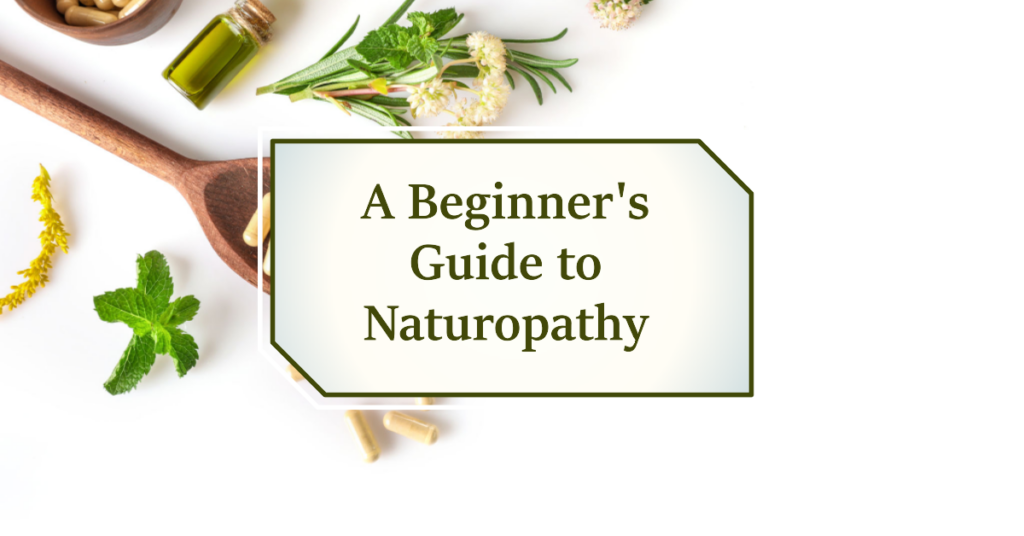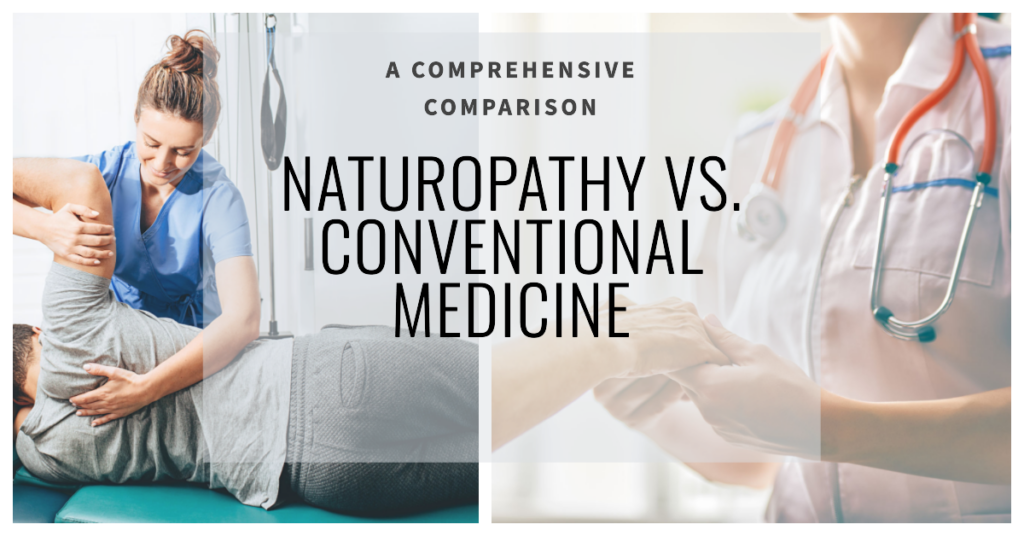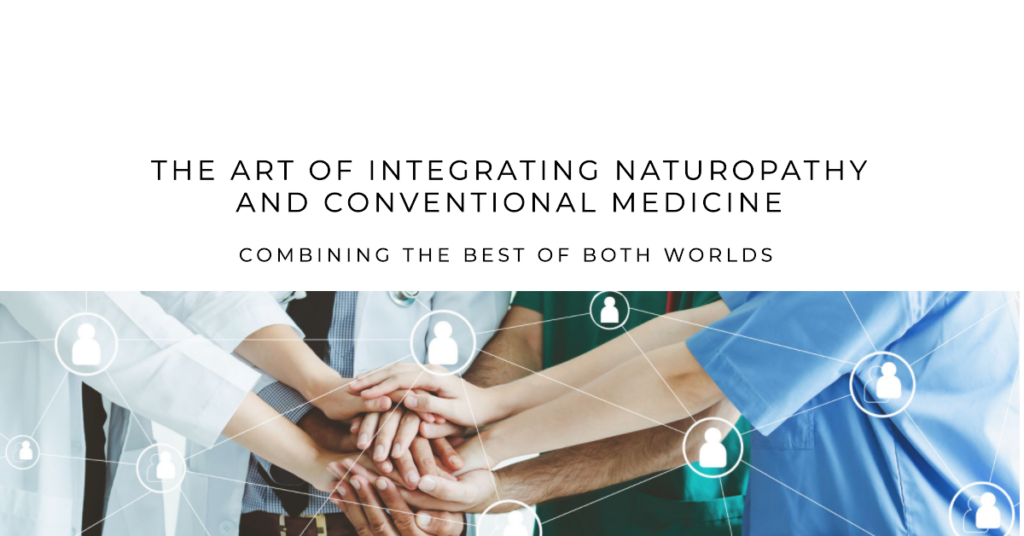Dispelling Myths: Naturopathy Is Not Pseudoscience, It Is Evidence-Based Healing
In the words of Dr. Joseph Pizzorno, co-founder of Bastyr University and a leader in natural medicine, “Naturopathy is about empowering patients to make lifestyle changes in order to achieve sustainable health and wellness. It is more than just treating symptoms; it is about identifying and addressing the underlying causes of disease. This approach respects the unique biochemical individuality of each patient and encourages self-responsibility for health.”
One common misunderstanding tied to naturopathy is the fact that it is a pseudoscience or that it is in opposition to evidence-based medical treatments. This misconception, unfortunately, alienates a holistic health approach that can provide significant benefits to patients. In reality, naturopathic practices and education are deeply rooted in scientific research and evidence. In this article, we aim to erase these doubts by providing scientific evidence that confirms naturopathy as a credible, science-based discipline. Prepare to unravel the truth!
Addressing the Naturopathy Controversy: Separating Myths from Evidence-Based Facts
Naturopathy Does Not Claim to Replace Conventional Medicine
Naturopathy, a field often encased in misinformation, is frequently reduced to a narrative that positions it as an alternative, attempting to replace conventional medicine. This view is a vast oversimplification and starkly contrasts the genuine role of naturopathy in health care.
Naturopathic medicine, or naturopathy as it is commonly known, is not in competition with the established medical practices executed by doctors and other health professionals.
Instead, it represents an additional tool in a comprehensive health care arsenal, serving as a complementary practice that can enhance patient care when intelligently integrated with traditional medical methods.
An important point that often gets overlooked in discussions around naturopathy is the principle of its practice.
Naturopaths and naturopathy practitioners have never positioned themselves as replacements for conventional doctors or the established medical care system. In fact, the ethos of naturopathy underlines the significance of collaborative healthcare approach.
Indeed, naturopaths and naturopathy practitioners, similar to medical physicians, depend on the same basic biomedical sciences to educate themselves about the human body and the diseases that plague it.
The knowledge and understanding obtained from these scientific studies form the bedrock of the patient care that naturopathic physicians provide, further elevating the service with an added layer of natural practices.
Scientific literature, accessible in repositories like the PubMed and Cochrane database, offers a wealth of studies supporting naturopathic practices.
The “Complementary Therapies in Clinical Practice” journal, for instance, highlights the efficacy of naturopathy in patient care through several peer-reviewed articles.
Despite these resources, the perception persists that naturopathy exists outside the sphere of accepted, evidence-based health care.
It is crucial, therefore, to acknowledge the role that naturopathic physicians can have in our health care systems.
As science- and evidence-based practitioners, their focus on natural healing and preventative care can act synergistically with the care administered by traditional medical doctors, leading to enhanced patient outcomes in a comprehensive care environment.
Naturopathy Emphasizes on Prevention Vs Conventional Medicine Emphasizes on Healing
Prevention is indeed a cornerstone principle within the realm of naturopathy.
Emphasizing the importance of preventative measures, naturopathic practitioners advocate for proactivity in healthcare, focusing on wellness maintenance and disease avoidance rather than just the post facto treatment of illnesses.
This signifies a shift away from reactive medicine and towards a more constructive and sustainable perspective of health.
The National Institutes of Health (NIH), a cadence-setting institution for global health, recognizes and supports this preventive approach.
The NIH’s endorsement is particularly relevant as it acknowledges the vital role that dietary and lifestyle changes play in the prevention of major diseases. Such changes form the crux of naturopathy, demonstrating the potential and importance of naturopathic practices in modern healthcare.
In the perspective of naturopathy, prevention is achieved through fostering healthy habits, adopting balanced diets, and attuning to the body’s natural needs. It encourages an active lifestyle nuanced by nature-based remedies and therapies that harmonize the body, mind, and spirit, effectively promoting health resilience.
Aligning with naturopathic principles, the NIH emphasizes the need to take preventative action in healthcare, recognizing that the risk of many diseases can be significantly reduced with lifestyle modifications. Paramount among these are proper nutrition and regular physical activity, both core elements in naturopathic preventative care.
Hence, naturopathy’s preventive approach to health care, underscored by dietary and lifestyle changes, is a pivotal strategy that aligns with respected institutions like the NIH.
This complementary medical practice extraordinarily materializes the adage, “prevention is better than cure,” further establishing naturopathy’s crucial role in the broader healthcare landscape.
Notable Scientific Studies on the Benefits of Naturopathy that Prove Naturopathy Is Not a Pseudoscience
Naturopathy is not a pseudoscience, and scientific research is here to prove it.
Indeed, multiple clinical trials and studies have supported the efficacy of naturopathic treatments.
1. Canadian Medical Association Journal, 2013:
This notable study found that integrating naturopathic care with standard medical treatment could significantly reduce the risk of cardiovascular disease.
Participants received advice on diet, lifestyle, and selected nutritional supplements from naturopathic doctors, resulting in improved cardiovascular risk factors when compared to the control group.
2. Alternative Medicine Review, 2010:
This comprehensive study indicated that naturopathic treatments could improve patient outcomes for chronic diseases like type II diabetes and cardiovascular diseases. It showcased the power of holistic, personalized approaches of naturopathy in managing complex long-term conditions.
Moreover, recent studies have continued to evidence similar findings:
3. PLOS ONE, 2017:
A study published in this peer-reviewed journal highlighted that naturopathic treatments could beneficially impact chronic pain management. It underscored that care methods focused on diet, stress management, and targeted natural therapies could improve patient health-related quality of life.
4. Journal of Alternative and Complementary Medicine, 2020:
This recent research demonstrated that naturopathic care could significantly lessen anxiety levels and improve mental health. This adds to the growing recognition of the potential role of naturopathy in managing mental wellbeing along with physical health.
5. Journal of Aging Research and Healthcare, 2019:
This study pointed out that naturopathic practices such as lifestyle alterations and therapeutic nutrition could be instrumental in addressing older adults’ health needs.
These independent research studies, and many others, underscore the value in combining naturopathic treatments with conventional medical practices for comprehensive patient care. They prove that naturopathy is not only effective but can also be a deciding factor in maintaining health and preventing the likelihood of chronic diseases.
The Practice of Naturopathy Takes into Consideration the Individuality of Each Person
Naturopathy embraces the understanding that each individual is unique, and thus, treatment should be tailored to meet the needs of the individual.
This person-centered approach sets naturopathy apart, making it a valuable addition to health and wellness care. This principle is aligned with the emerging emphasis on personalized medicine in the realm of conventional health care.
As supported by numerous scientific studies, the recognition of individuals’ uniqueness, their genetics, environment, and lifestyle is critical in determining a comprehensive care plan. Let’s take a look at a few:
1. Journal of Personalized Medicine, 2020:
A study published in this journal emphasized the exceptional potential of personalized medicine. It reported that considering patients’ uniqueness regarding their genetic makeup, patterns, and personal preferences could foster improved health outcomes, particularly in managing chronic diseases like heart diseases and diabetes.
2. The Permanente Journal, 2018:
This research outlined the necessity of taking into account the individuality of patients in successfully managing their health issues. It demonstrated how personalized lifestyle interventions, centered around patients’ unique needs, were significantly beneficial in disease prevention, control, and treatment.
3. Integrative Medicine Research, 2020:
This study underscored the importance of a personalized lifestyle plan in enhancing patients’ health outcomes, specifically concerning chronic disease management and prevention.
4. PLoS ONE, 2019:
Researchers found that personalizing diets based on the individual’s genetics, gut microbiome, and metabolomics could significantly enhance the management of metabolic diseases.
These studies, and a myriad of other findings, affirm that the recognition of individuality is not only crucial for more personalized health care but is also pivotal for better patient outcomes. Naturopathy, by its very nature, acknowledges this essential aspect of personalized care. Hence, forming a harmonious bridge between conventional medicine and naturopathy can yield far-reaching benefits for patients and healthcare as a whole.
Our Commitment: Delivering Evidence-Based Naturopathy Education
At Scholistico, our unwavering conviction lies in the significant role naturopathy plays in promoting health and wellness.
Recognizing the scientific evidence that upholds this discipline, we’ve designed our naturopathy training course grounded in rigorous study, real-world clinical observations, and the latest research findings.
Every aspect of our course is constructed with keen respect and adherence to the evidence-based principles of naturopathy and it is far from the wrong belief that naturopathy is a pseudoscience.
It revolves around the concept that naturopathy is not a replacement for conventional medicine but a complementary approach that works symbiotically to promote holistic health.
Our curriculum also emphasizes the pivotal role of individuality when extending healthcare and the fundamental principle of ‘prevention rather than cure’, and we help you conceive individualized treatment plans for your future clients.
Naturopathy, in our view, is the work of dedicated, passionate people who strive to find genuine and efficient alternatives for health improvement. Far from the misconceptions that it’s a pseudo-science, naturopathy, as Scholistico teaches, is a science-backed tool for health promotion – one that harmoniously integrates the natural wisdom of our bodies with the advancements of medical science.
By enrolling in our naturopathy course at Scholistico, you are investing in a journey towards a deeper understanding of health from an evidence-based perspective. Our commitment lies in equipping our students with the knowledge, skills, and confidence to use naturopathy as a path to transform lives, ultimately contributing to enhancing the health and wellbeing of the global community.
In conclusion, it’s evident from the comprehensive scientific research that naturopathy, far from being a pseudoscience, is a deeply rooted science-based discipline with solid principles for promoting health and wellness. It emphasizes treating the individual holistically, focusing on prevention and encouraging natural healing. Naturopathy is not a rival for conventional medicine, but efficiently complements it for sustainable health outcomes. Ultimately, the real essence of naturopathy lies in understanding and respecting that it is not pseudoscience but a distinctive, crucial part of our healthcare ecosystem.








Responses